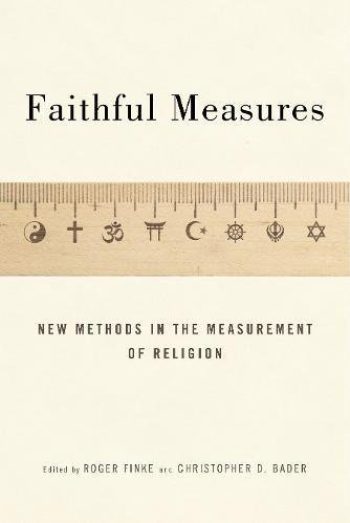What does it say about the cultural divide in America that there has been a skyrocketing escalation in the use of language perceived by many as taking the name of God in vain?
As pollsters, researchers and media outlets come under increasing pressure to promote findings that “sell” in a crowded information marketplace, how can individuals separate the wheat from the chaff in survey data?
One might even ask how science can hope to capture in concrete form experiences that leading psychology researchers such as Peter Hill and Kenneth Pargament note “are as inherently elusive and mysterious as religion and spirituality.”
The answers to these and other questions, such as how to determine the beliefs of a growing percentage of people not affiliating with traditional religious groups, are difficult to come by in a rapidly evolving religious landscape.
Click here to read the Huffington Post Article about "Faithful Measures".

What does it say about the cultural divide in America that there has been a skyrocketing escalation in the use of language perceived by many as taking the name of God in vain?
As pollsters, researchers and media outlets come under increasing pressure to promote findings that “sell” in a crowded information marketplace, how can individuals separate the wheat from the chaff in survey data?
One might even ask how science can hope to capture in concrete form experiences that leading psychology researchers such as Peter Hill and Kenneth Pargament note “are as inherently elusive and mysterious as religion and spirituality.”
The answers to these and other questions, such as how to determine the beliefs of a growing percentage of people not affiliating with traditional religious groups, are difficult to come by in a rapidly evolving religious landscape.
Click here to read the Huffington Post Article about "Faithful Measures".